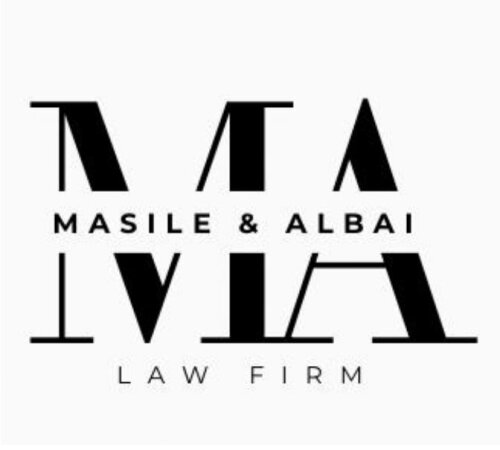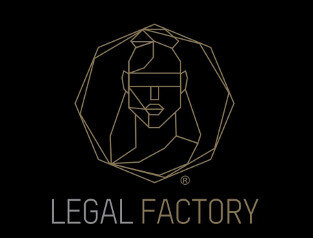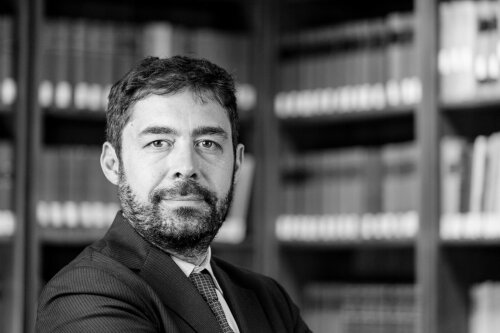Best Child Abuse Lawyers in Cagliari
Share your needs with us, get contacted by law firms.
Free. Takes 2 min.
Free Guide to Hiring a Family Lawyer
List of the best lawyers in Cagliari, Italy
About Child Abuse Law in Cagliari, Italy
Child abuse is a serious crime in Cagliari, as in the rest of Italy. It encompasses physical, psychological, and sexual abuse, as well as neglect and maltreatment of minors (individuals under 18 years old). Italian law is designed to protect children and ensure their wellbeing, giving authorities the power to intervene when a child's safety is at risk. Various laws define and prohibit different forms of child abuse, assigning both civil and criminal consequences to offenders. In Cagliari, local authorities, the judiciary, and social services work together to support and protect children who may be victims of abuse.
Why You May Need a Lawyer
Seeking legal assistance in cases involving child abuse can be essential for several reasons. You may need a lawyer if:
- You suspect a child is being abused and want to know your legal obligations for reporting.
- You or your child have been accused of child abuse and require defense in criminal proceedings.
- You are a parent or guardian wishing to protect a child from an environment of abuse or neglect.
- You are seeking custodial changes or visitation rights due to suspected abuse.
- You wish to understand your rights and the court process in a child protection or criminal case.
- You are involved as a teacher, doctor, or community worker and require guidance on mandatory reporting and liability.
Lawyers experienced in child protection can help guide you through reporting processes, court proceedings, and interactions with social services.
Local Laws Overview
Child abuse laws in Cagliari are based on national Italian legislation, particularly the Italian Penal Code (Codice Penale) and specific statutes about minors. Important aspects include:
- Definition of Abuse: Encompasses physical harm, emotional harm, sexual abuse, and neglect.
- Mandatory Reporting: Teachers, healthcare professionals, and certain other professionals are required by law to report suspected child abuse to the authorities.
- Criminal Penalties: Offenders may face imprisonment, fines, and restrictions on contact with minors. Sentences can be more severe when abuse results in serious injury or involves repeated acts.
- Protective Measures: Courts can issue restraining orders, remove children from dangerous situations, and place them under state or foster care.
- Parental Rights: Courts can limit or revoke parental rights in cases where abuse is proven.
- Child Witness Protections: Italian courts employ special procedures to protect child victims and witnesses during investigations and trials.
Frequently Asked Questions
What is legally considered child abuse in Cagliari, Italy?
Child abuse covers physical, emotional, and sexual abuse, as well as serious neglect or maltreatment of anyone under 18 years of age. This includes violent acts, insults, threats, inappropriate touching, and failure to provide basic care.
What should I do if I suspect a child is being abused?
If you suspect abuse, you should contact the local police (Carabinieri or Polizia di Stato), social services (Servizi Sociali), or the dedicated child protection helpline. Professionals such as teachers or doctors are legally required to report suspected abuse.
Can I remain anonymous if I report suspected abuse?
Reports can often be made anonymously, but providing your details can help authorities if they need further information. Professionals making mandatory reports will be identified but are protected by law when acting in good faith.
What happens after a report of child abuse is made?
Authorities will investigate the situation, sometimes involving social services. If necessary, protective measures like removing the child from the home, medical evaluations, or temporary foster care may be implemented.
What are the penalties for child abuse in Italy?
Penalties depend on the severity and type of abuse, but can range from fines to several years in prison. Aggravating factors can lead to harsher sentences, especially in cases of repeat offenses, severe injury, or sexual abuse.
Can a child testify in court?
Yes, but special procedures are in place to minimize trauma. Testimonies are often taken by specially trained personnel and may occur via video-link or in child-friendly environments.
What rights do parents have if accused of abuse?
Accused parents have the right to legal representation and to present their case in court. However, the court's primary concern will be the child's safety, which may result in temporary loss of custody during investigations.
How can a lawyer help in child abuse cases?
A lawyer can guide you through legal procedures, represent you in court, help gather or challenge evidence, and ensure your rights are protected throughout the process.
Are there support services for child victims?
Yes, there are social services, psychological support centers, and child advocacy organizations that provide counseling, legal advice, and practical assistance to child victims and their families.
Can child abuse allegations affect custody or visitation rights?
Absolutely. Courts can temporarily or permanently change custody or restrict visitation if abuse is substantiated, always prioritizing the child's best interests and safety.
Additional Resources
If you or someone you know needs help or information regarding child abuse in Cagliari, the following resources can be useful:
- Servizi Sociali - Local social services offices assist in child protection cases.
- Polizia di Stato / Carabinieri - Local police authorities handle emergency situations and initial investigations.
- Telefono Azzurro - National helpline for children and families facing abuse.
- Family Courts (Tribunale per i Minorenni) - Specialized courts handling cases involving minors, including protection and custody matters.
- Local Bar Association (Ordine degli Avvocati di Cagliari) - Can provide lists of experienced lawyers in child abuse matters.
- Pediatric and Psychological Services - Hospitals and clinics offer medical and psychological support to victims of abuse.
Next Steps
If you need legal assistance regarding child abuse in Cagliari:
- Document any signs or evidence of abuse: Keep records, take photographs (if safe and appropriate), and write down observations.
- Contact the authorities: In cases of immediate danger, call the police. For ongoing concerns, reach out to social services or a child protection helpline.
- Seek legal help: Contact a lawyer specialized in family law or child protection. The local Bar Association can provide referrals.
- Access support services: Use available psychological and social resources for children and families.
- Prepare for legal proceedings: Your lawyer can explain what to expect, help build your case, and guide you on the best steps to secure the safety and rights of the child involved.
Taking action can be daunting, but know that there are professionals and organizations ready to help you and protect the welfare of children in Cagliari.
Lawzana helps you find the best lawyers and law firms in Cagliari through a curated and pre-screened list of qualified legal professionals. Our platform offers rankings and detailed profiles of attorneys and law firms, allowing you to compare based on practice areas, including Child Abuse, experience, and client feedback.
Each profile includes a description of the firm's areas of practice, client reviews, team members and partners, year of establishment, spoken languages, office locations, contact information, social media presence, and any published articles or resources. Most firms on our platform speak English and are experienced in both local and international legal matters.
Get a quote from top-rated law firms in Cagliari, Italy — quickly, securely, and without unnecessary hassle.
Disclaimer:
The information provided on this page is for general informational purposes only and does not constitute legal advice. While we strive to ensure the accuracy and relevance of the content, legal information may change over time, and interpretations of the law can vary. You should always consult with a qualified legal professional for advice specific to your situation.
We disclaim all liability for actions taken or not taken based on the content of this page. If you believe any information is incorrect or outdated, please contact us, and we will review and update it where appropriate.











